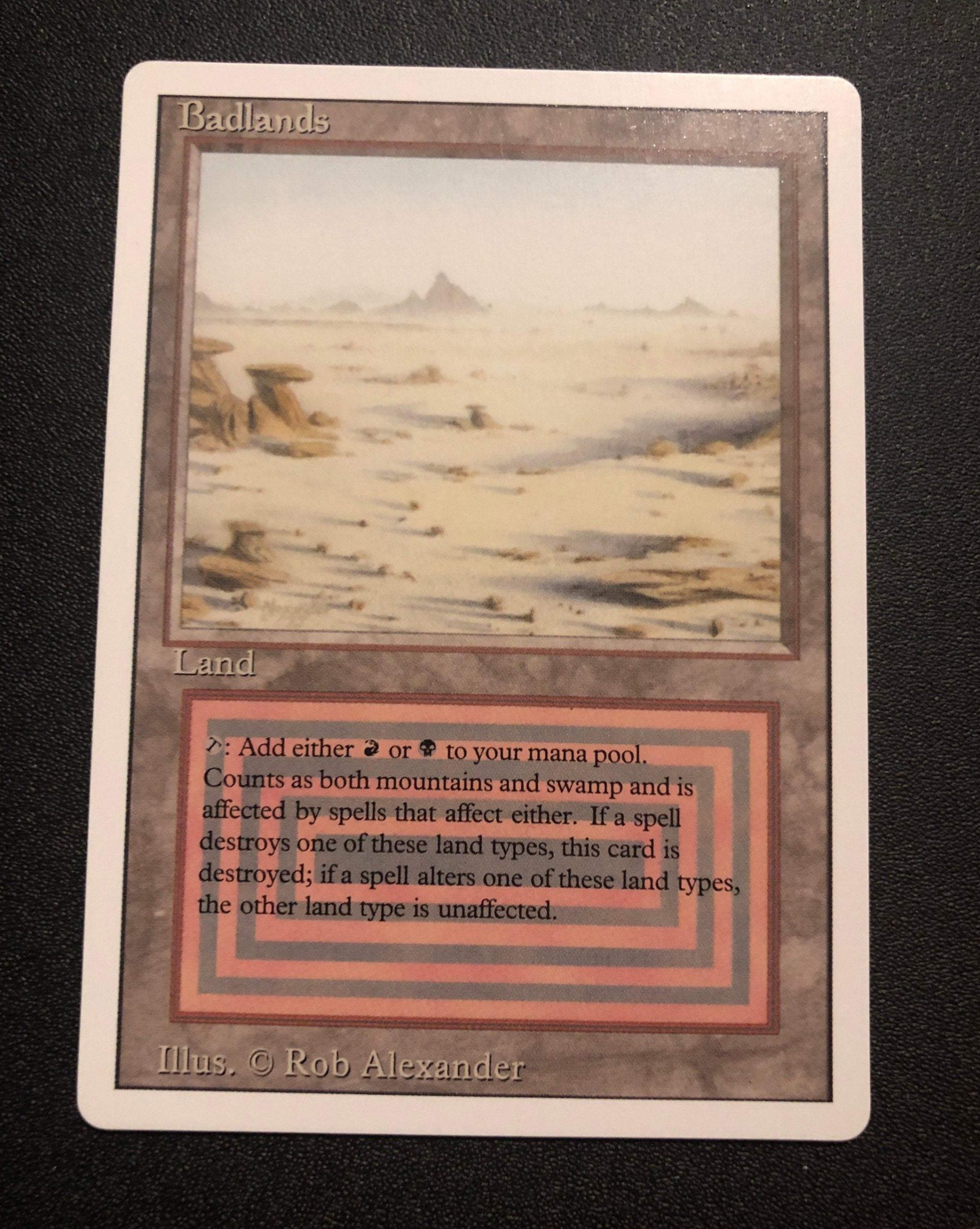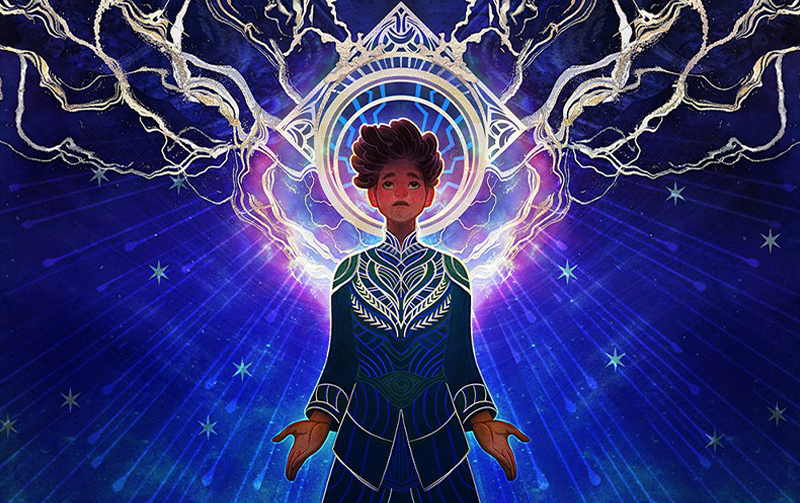**What it does**
Badlands is the original red/black dual land. It’s both a **Swamp** and a **Mountain**, so it taps for either black or red and is fetchable by anything that searches for those basic land types. It enters untapped with no drawback.
**How it plays**
Typed duals are premium fixing. Being a Swamp/Mountain means Badlands works with cards that care about land types (Cabal Coffers counting Swamps, Farseek/Prismatic Vista/Fetchlands, Koth/Valakut style payoffs) and it’s vulnerable to hate that targets nonbasics (Blood Moon, Back to Basics). Because there’s no life loss or ETB tapped clause, Badlands is ideal for low‑curve, interaction‑heavy games where every mana counts.
**Roles & best use cases**
– **Rakdos midrange/control**: Cleanly casts early discard and removal while enabling late‑game double‑pips.
– **Combo shells**: Fetchable, untapped fixing for rituals and tutors in tight sequencing turns.
– **Commander manabases**: Pairs with Shocklands, Checklands, and the rest of the ABUR dual suite for painless fixing.
**Sequencing tips**
Lead on fetchland into Badlands when you need perfect RB now; otherwise, fetch basics first if you expect Moon effects. In budget‑aware cubes/EDH, mix with shocks (Blood Crypt) and basics to preserve resilience without sacrificing speed.
**Formats & popularity**
Legal in **Legacy**, **Vintage**, and **Commander** (and Old School variants), but not in Modern/Pioneer. A staple in Rakdos cEDH and legacy manabases where perfect fixing matters.
**Proxy note**
This is a third‑party proxy for casual play and testing. Not tournament legal. ProxyMTG is not affiliated with Wizards of the Coast.




Reviews
There are no reviews yet.